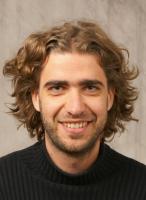Masaryk University (MU), the second largest Czech university, has an internationally respected research program, state-of-the-art infrastructure and 38000 research results visible on the European scale.
The faculty of Social Studies is continuously receiving top ratings among social sciences faculties. Research activities grant a budget of about 14 million Euros to the Faculty with 160+ academic publications per year. The Department of Environmental Studies, with background in environmental sociology (Prof. Librová, As. Prof. Stibral, Ulčák, PhD.) and environmental evaluation (Činčera, PhD., Krajhanzl, PhD.), takes as its starting point the historic and cultural causes of the environmental crisis and looks for possible solutions in the areas of social, economic, legal and political studies and their interactions, considering also natural sciences approach. There are numerous projects in progress in the Department, administered by 3 project coordinators funded by EC ECP to upgrade the teaching and study performance (15 mil. CZK), Social and financial metabolism of selected local food systems or participation in ICNP SD. The department has a long-standing and fruitful cooperation with Austrian and German universities, Telemark University College, Universidad Autonoma de Barcelona, and Tata Institute of Social Sciences in Mumbai.




